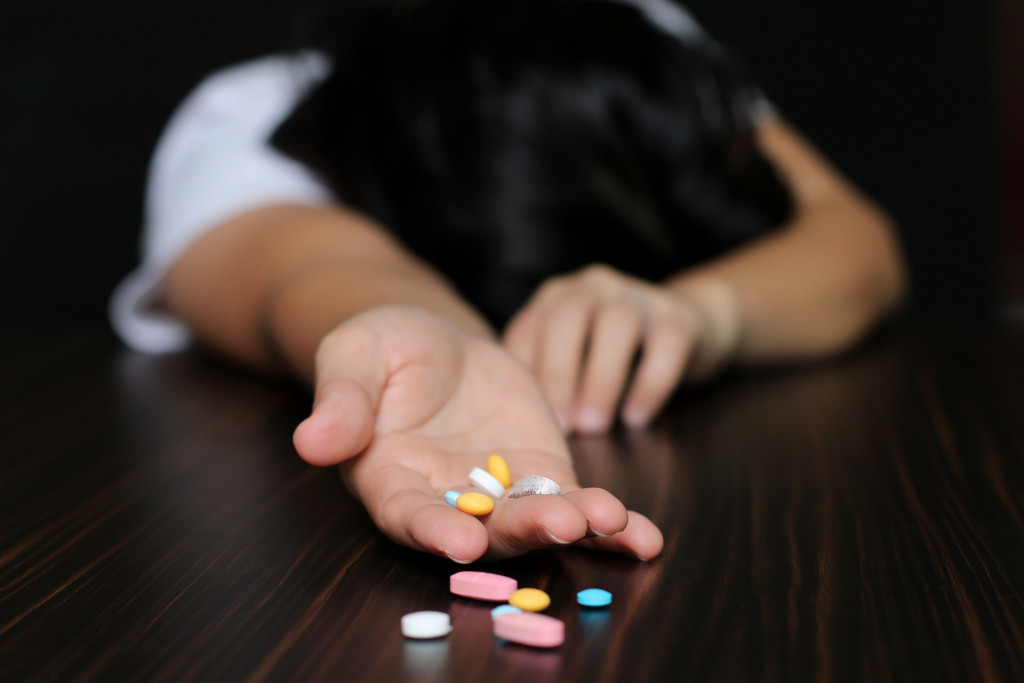- Drug abuse alters our brains’ chemistry and structure, leading to difficulty focusing or learning new information.
- Signs of drug abuse include changes in sleep patterns, appetite, mood or behavior, confusion, forgetfulness, and financial problems.
- Treatment options range from self-help groups to addiction treatment centers and medication-assisted treatment.
- Knowing the warning signs of drug abuse and seeking help from a doctor or mental health specialist is essential.
Drug abuse is a serious issue that can negatively affect our physical and mental health. It is essential to understand how drugs affect our brains, know the signs of drug abuse, and know what treatment options are available. Here’s a brief look at these topics in more depth.
How Drugs Affect Our Brains
It’s no secret that drugs significantly impact our health, but do you know how drug abuse affects our brains? While most people are aware that drugs can be addictive, few realize just how drastically they alter the way our brains work.
The Chemistry of Drug Abuse
Drugs affect the brain in two main ways: by altering its chemistry and structure. Many substances contain chemicals that bind to specific receptors in the brain and create an influx of dopamine or serotonin, two neurotransmitters responsible for regulating pleasure and reward pathways.
As someone continues to abuse these drugs, their brain becomes accustomed to having these synthetic chemicals present in large amounts and begins to rely on them for all its “rewarding” activities. This is why addiction is challenging to overcome; without regular doses of a given substance, someone can experience extreme cravings and withdrawal symptoms.
The Structural Effects of Drug Abuse

In addition to altering chemical pathways, drug abuse also affects the brain’s physical structure. A study conducted by researchers at Harvard Medical School found that long-term marijuana use can lead to reduced gray matter in areas associated with memory formation, decision-making, impulse control, language processing, attention span, motivation, and emotion regulation.
Ultimately, this means that people who regularly use marijuana can experience mood swings and difficulty focusing or learning new information—all side effects commonly associated with drug abuse.
Signs of Drug Abuse
It is essential to be aware of the warning signs of drug abuse so that you can help those who may need it. Some symptoms include changes in sleep patterns or appetite; changes in mood or behavior; confusion; forgetfulness; reduced interest in activities they once enjoyed; lying or secretive behavior; financial problems; weight loss; and poor hygiene or grooming habits. If you notice any of these signs in someone close to you, it may be time for an intervention or for them to seek professional help from a doctor or mental health specialist.
Treatment Options
Many treatment options are available for people struggling with drug addiction or abuse. Depending on the severity of the issue, treatment may include the following:
Addiction Treatment Centers

Addiction treatment centers are another option for those seeking help with drug abuse issues. These centers provide comprehensive care, including detoxification services, individual counseling, group therapy sessions, family therapy sessions, aftercare services, and more.
Addiction treatment centers are often well-equipped to handle complex cases of addiction involving multiple substances or mental health issues such as depression or anxiety. They also provide support resources such as 12-step meetings and peer support groups to help individuals maintain long-term sobriety.
Inpatient vs. Outpatient Treatment
The first step in understanding drug abuse treatment options is knowing the difference between inpatient and outpatient programs. Inpatient programs involve a stay at a residential facility.
This means an individual will stay in a facility with 24/7 care and support while undergoing treatment. Outpatient programs do not require an overnight stay and instead involve regular visits to a clinic or other healthcare provider for therapy, counseling, and medical care.
Medication-Assisted Treatment (MAT)
Medication-assisted treatment (MAT) is another option for treating drug abuse. This type of program combines medication with counseling sessions and other forms of therapy to help reduce cravings and withdrawal symptoms associated with addiction. It also allows individuals to manage their condition over time by providing them with medication that helps prevent relapse or reduce drug cravings when they occur.
The Bottom Line
Drug abuse has serious consequences not only on our physical health but also on our mental health due to its impact on our brains over time. It is essential to be aware of potential signs of drug abuse so that we can help those who need it before it is too late. Many different treatment options are available that cater to each individual’s needs – from self-help groups to residential treatment centers – so that everyone has access to proper care and support to get better sooner rather than later!

